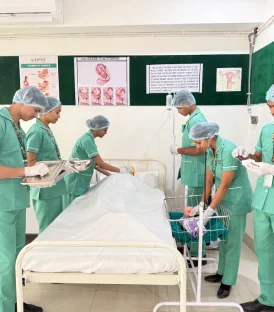October 31, 2023
The thymus gland, plays a crucial role in maintaining our immune system’s integrity. It is situated just beneath the sternum, the thymus gland is primarily responsible for the development and maturation of T-lymphocytes, or T cells, a type of white blood cell that plays a pivotal role in immune responses.
The thymus gland’s function is particularly important during early life and childhood. As we age, the thymus gradually shrinks and is replaced by fat tissue, but its impact on our immune system’s development remains unaffected.
Thymopoiesis, the process by which the thymus produces T cells, begins with hematopoietic stem cells originating in the bone marrow. These precursor cells migrate to the thymus and differentiate into immature T cells, which then undergo a series of complex maturation steps in the thymus. In the thymus, T cells learn to recognize and respond to specific antigens while avoiding self-reactivity, a process crucial for preventing autoimmune diseases.
Central to this process is the presentation of self-antigens by thymic epithelial cells, which instructs T cells on the difference between “self” and “non-self.” If a T cell reacts too strongly against self-antigens, it is eliminated through negative selection, preventing autoimmune responses. Conversely, T cells that respond appropriately to foreign antigens undergo positive selection and are released into circulation as part of the immune system.
The thymus gland’s role extends beyond T cell maturation. It also secretes various hormones, such as thymulin, thymosin, and interleukins, which influence T cell development and the overall functioning of the immune system. These hormones help setup immune responses by promoting the proliferation and activation of T cells when the body encounters pathogens or foreign invaders.
Unfortunately, the thymus is not immune to health challenges. In some cases, individuals may experience thymic abnormalities, such as thymomas or thymic hyperplasia, which can disrupt immune function. These conditions may require medical intervention, surgical removal of thymomas to the management of autoimmune disorders associated with thymic dysfunction.
Although the thymus gland’s effectiveness decreases with age, but it plays an important role in shaping the immune system. Understanding the thymus’s role in T cell development and immune education sheds light on the intricate mechanisms that safeguard our bodies from infections and autoimmune diseases. Although small in size, the thymus gland’s contributions to human health are immeasurable, emphasizing the importance of nurturing and protecting this remarkable organ throughout our lives.

















